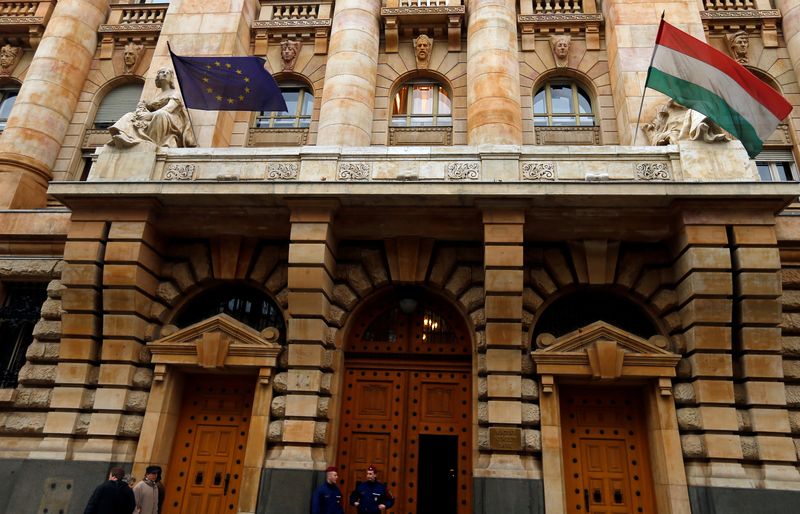BUDAPEST (Reuters) - Hungary's central bank hiked its one-week deposit rate by 50 bps to 7.75% at a tender on Thursday as its raised its forecast for tax-adjusted core inflation, its preferred measure of lasting price trends, to an eye-watering 13%-14% this year.
The National Bank of Hungary (NBH) raised its base rate by a whopping 185 basis points to 7.75% on Tuesday, delivering its biggest rate rise since the start of the global financial crisis in 2008 to shore up the forint.
On Thursday, it followed up that increase with a 50 bps hike in the one-week deposit rate, its facility designed to tackle short-term financial market volatility, closing the spread between the two rates in line with its earlier pledge.
The NBH lifted its 2022 tax-adjusted core inflation forecast from 7.9% to 9.4% seen just three months ago, projecting a retreat to 6.6% to 8.2% next year, still sharply above its 2% to 4% policy target range.
The NBH also projects private sector gross wage growth at 13.2% to 13.8% this year and at 8.8% to 9.9% next year, which it said could pose further upside risks to inflation.
"Since there is strong competition for skilled labour force in all sectors, robust wage growth is likely to persist, which increases the risk of rising underlying inflation developments," it said.
The bank's deputy Governor Barnabas Virag said the bank needed "every percentage point and basis point" to reach its 3% inflation target, which is expected to happen in 2024.
The bank raised its 2022 inflation forecast to 11-12.6% from 7.5-9.8%, and also raised its 2023 projection even though the government has put in place price caps on fuels, basic foodstuffs and households' energy bills.
The NBH has also pledged more, and decisive rate hikes to come saying that fending off second-round inflation impacts and anchoring expectations was paramount.

"We now see the NBH hiking its base rate to 10% against 8.90% previously by end-3Q22, most likely in a front-loaded manner," Morgan Stanley (NYSE:MS) said in a note.
The bigger-than-expected rate hike on Tuesday helped shore up the forint, which plunged to record lows of 404.50 versus the euro on Monday. By Thursday the currency firmed to 395, paring some of its gains.